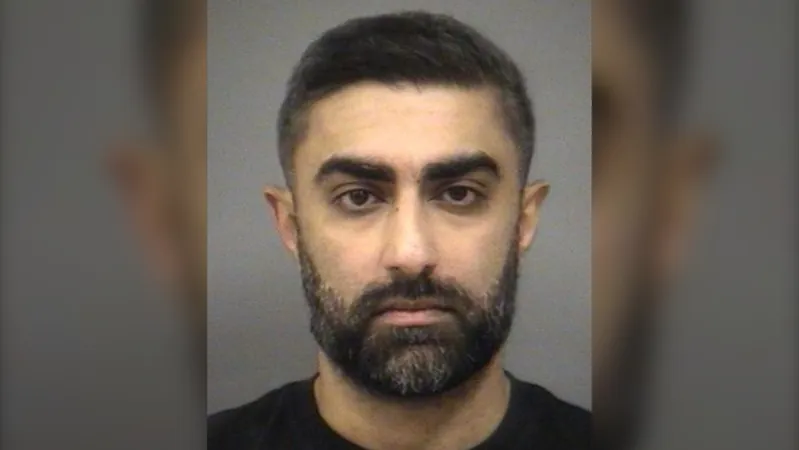
Nazem Kadri Opens Up About His Time with the Maple Leafs and the Joy of Winning the Stanley Cup
2024-11-03
Author: Amelia
Nazem Kadri's journey in the NHL began over 15 years ago when the Toronto Maple Leafs drafted him seventh overall in the 2009 NHL Draft. Since then, Kadri has logged over 900 NHL games and celebrated a Stanley Cup victory with the Colorado Avalanche in 2022—a crowning achievement in a career filled with ups and downs.
In his recently released memoir, "Dreamer: My Life On The Edge," co-authored with Dan Robson from The Athletic, Kadri takes a reflective look at his tumultuous decade with the Maple Leafs. He shares candid insights into the highs of his career, the struggles he faced, and the frustrations arising from the management team during his tenure in Toronto.
When reminiscing about his emotional moment lifting the Stanley Cup, Kadri shared, “One of my favorite parts is just going back to the dressing room afterward, hanging out there for hours.” He described the euphoric atmosphere surrounding the team following their victory, despite the pain of competing with a severe injury—a broken thumb that required the medical staff to assist him in dressing for games.
Kadri’s triumph came after a history of suspensions that impacted his reputation as a player. Winning the Cup allowed him to silence some critics, reflecting on the immense pressure he felt going into the playoffs: “I had to come ready to go. It was make or break for me.”
Heartbreakingly, he also disclosed that his relationship with Leafs management was strained. Kadri felt mistreated, especially after being traded to Colorado, which made him feel personally slighted. “At that point, I made it personal,” he admitted.
Adding context to his transition, he pointed out that a different leadership approach from then-General Manager Lou Lamoriello would have perhaps fostered a better atmosphere for growth. Kadri believed Lamoriello would have approached the situation with more communication and support, acknowledging the difficulties he experienced as he navigated his early career with the Leafs.
Throughout his book, Kadri reveals many anecdotes, including a notably bizarre moment where the team suggested he live with a billet family—a move that he promptly rejected. Reflecting on the perception that he was arrogant, Kadri believes this misinterpretation stemmed from his confidence being mistaken for cockiness, despite his camaraderie with teammates.
Interestingly, Kadri disclosed that he found value in playing under coach Mike Babcock, despite the controversial label Babcock holds among fans and analysts. “He made me a better player,” Kadri said, emphasizing how Babcock’s daily meetings had a significant impact on his career trajectory. These sessions often included reviewing clips of great players like Pavel Datsyuk, which inspired Kadri to elevate his own game.
When asked about fellow teammate Mitch Marner, Kadri expressed solidarity and admiration, echoing the sentiment that star players often receive undue criticism based on their high expectations. His advocacy for Marner illustrates his understanding of the pressures that come with being an elite athlete in a passionate hockey market like Toronto.
Kadri’s story serves as a reminder of the complexity behind professional sports, where personal journeys may often be overshadowed by public perception. As he moves forward in his career, his reflections showcase not only the triumphs but also the lessons learned throughout an extraordinary hockey journey.
In a world eager for dramatic narratives, Kadri's memoir promises to be an engaging read, shedding light on the intricacies of an NHL career filled with passion, resilience, and growth.









 Brasil (PT)
Brasil (PT)
 Canada (EN)
Canada (EN)
 Chile (ES)
Chile (ES)
 España (ES)
España (ES)
 France (FR)
France (FR)
 Hong Kong (EN)
Hong Kong (EN)
 Italia (IT)
Italia (IT)
 日本 (JA)
日本 (JA)
 Magyarország (HU)
Magyarország (HU)
 Norge (NO)
Norge (NO)
 Polska (PL)
Polska (PL)
 Schweiz (DE)
Schweiz (DE)
 Singapore (EN)
Singapore (EN)
 Sverige (SV)
Sverige (SV)
 Suomi (FI)
Suomi (FI)
 Türkiye (TR)
Türkiye (TR)